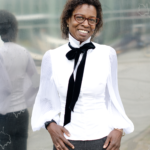
The Power of Dialogue in Coaching
Have you ever been in the situation where someone said something that made you so angry that you reacted defensively? I have. It is usually when I feel that either I am or someone close to me is being criticised unfairly…in my opinion. My reaction is to defend, often by pointing out faults I see in the person who is stating their opinion. Not the best way to behave on my part.
It is important that coaches do not allow this occasion to arise in coaching. In a coaching relationship the whole orientation of the coach is to be there for and with the coachee in an authentic way. This means that the coach is fully present, ‘in the moment’. Good coaches are attuned to listen, observe and feel what is happening in the client, in themselves and between them. Being alert to gestures, words, body language, tone and pitch that the coachee is using. Coaches bring these to his/her awareness as a means to explore for meaning.
Curiosity
I believe that the role of coach is to be open and curious to explore and learn and to help the coachee do the same. When coaches are truly present they do not worry about whether they are adding value to the client or what tool to use or experiment to conduct. They allow themselves to ‘be’ and allow the ‘right’ intervention to emerge from what is happening between the in that moment be it a metaphor that springs to mind or sharing a visceral experience that the coach is experiencing having i.e. coach and coachee dance together in the moment. It is widely recognised that when coaches let go in this way the most powerful insights and learning are derived.
Flow
To my mind, this state of flow, where the coach and coachee dance synchronously, is analogous to the process of dialogue. Dialogue is a much used word that I find mostly means to engage in an open discussion between two or more parties. I believe this type of conversation is important and often leads to greater understanding of the various positions and perspectives that are ‘in the room’. What I am referring to is the definition of dialogue espoused by David Bohm. He reminds us that the root of dialogue comes from Greek; logos means ‘the word’ and dia means through. So a dialogue can be within one person or amongst many. Bohm talks about a “stream of meaning flowing among and through us and between us. This will make possible a flow of meaning in the whole group, out of which may emerge some new understanding. It’s something new, which may not have been in the starting point at all. It’s something creative.” He goes on to state that a dialogue group does not decide what to do about anything; the group must have an empty space where they are not obliged to do anything, come to any conclusions, say or not say anything. It’s an empty space where anything may come in and after the group has finished they empty the space.
Creativity
Coaches create a safe space for the coachee to do whatever work they feel is necessary as part of their exploration, growth and development. Within the boundaries of the coaching relationship I believe that coach and coachee can enter into a dialogue at any moment without a specific goal in mind except to allow creativity and learning to emerge. It is important that there is a strong and trusting relationship between the coach and coachee since dialogue demands courage and self-confidence. Both coach and coachee need to have the maturity to suspend their assumptions and be curious to examine their emotions; neither reacting, as I described at the beginning of this blog, nor suppressing them.
Dialogue is scary and exciting. I believe it has the power to unlock new possibilities. If coaches are willing to persevere dialogue can take the coaching relationship to new heights of learning and growth in coaching.
Joan van den Brink, “your personal chemist”, is a freelance management consultant and owner of Araba Consulting. She works with individuals and organisations to tailor solutions that make them stronger and more capable. Joan has had a rich experience in a wide-ranging career that spans Marketing, Operations, HR, Communications and Management Consulting in global and local public and private sector organisations. She has travelled extensively throughout her life, working in the Americas, Asia, Australasia, Africa, the Middle East and Europe.
Bohm, D. On dialogue, Routledge Classics, 2004, Abingdon, UK and New York, USA, p6
Read more blogs from Joan: “You are not listening to me!”

+ 2 more
Diverse career enables me to connect and relate to my coachees.